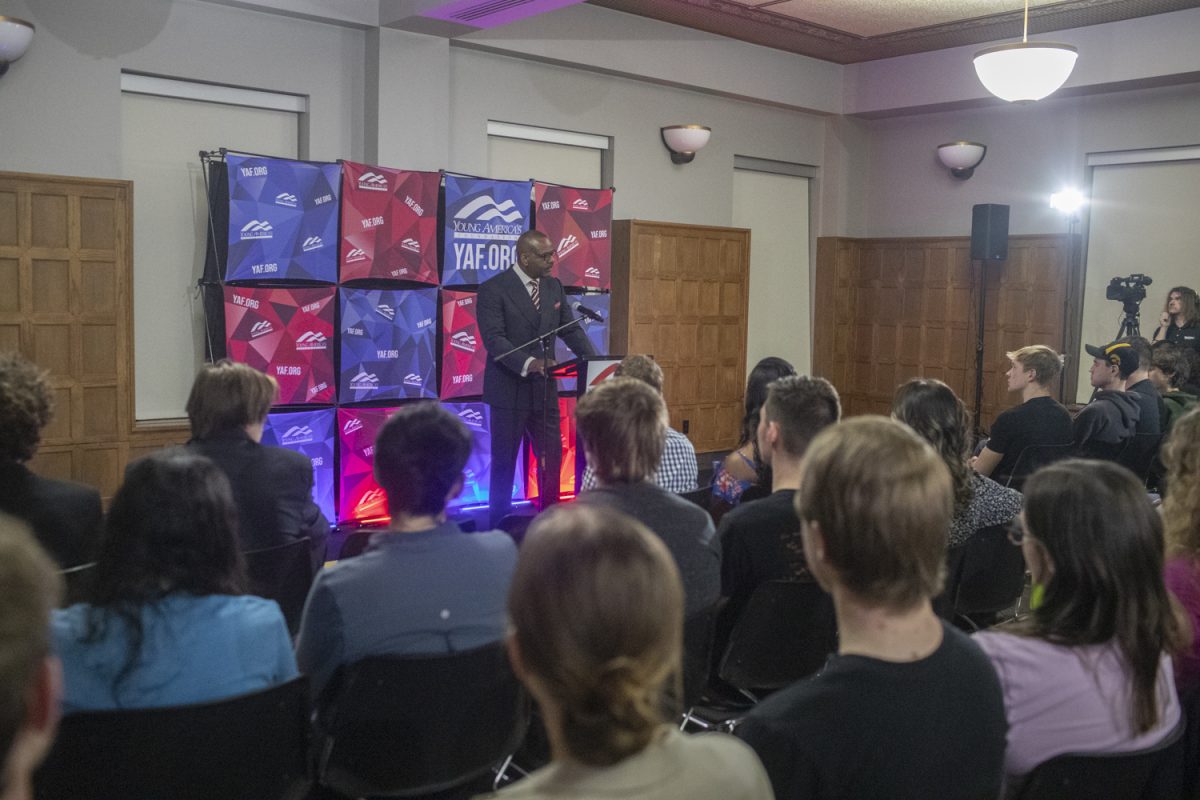Improving education, improving economy
Americans should be proud that over the past 10 years, growth in STEM (science, technology, engineering, and mathematics) careers was three times as fast as growth in non-STEM jobs. However, worldwide, U.S. high-school students rank 27th in math and 20th in science.
According to NationsReportCard.gov, the percentage of 12th-grade students at or above being proficient in civics (24 percent), economics (42 percent), geography (20 percent), mathematics (26 percent), reading (38 percent), U.S. history (12 percent), and writing (27 percent) is sobering. At the college level, fewer than 60 percent of students complete a bachelor’s degree within six years. The average debt of college graduates is $30,000. The cost of college tuition in the last decade has increased 80 percent; twice as fast as medical-care costs. And, 51 percent of college graduates are working full-time in a career that does not require a college degree.
Iowans believe in local control of educational policy. Logically, implementing change starts with Iowa’s school boards. Sadly, only 10 percent of Iowans vote in a school-board election. Iowa’s state Board of Regents and state-elected and federally elected politicians are also responsible for change. Seven solutions have been offered by 1,000 Republicans, 1,000 Democrats and 1,000 No-Party independents (Cohen Research Group, March, 2016) to rectify our pre K-12 and higher-education system, which would improve our economy:
1. Universal computer-science education, programming, and data analytics must be made available to every middle- and high-school student by 2020; supported by 86 percent of Americans.
2. Eighty-nine percent of Democrats, 75 percent of independents, and 66 percent of Republicans want all schools to have the infrastructure to support 21st-century learning via broadband access, technology-savvy teachers, and adequate computers.
3. Because research is replete of the short- and long-term value of preschool, especially increased high-school completion rates, reduced crime and reduced teen pregnancy, preschool should be mandatory.
4. Four out of five Americans want businesses, high schools, and community colleges to enhance vocational-technical education training programs in computer science and other STEM subjects.
5. Nearly 80 percent of Americans think we should expand access to online digital learning college courses, especially for rural populations and disadvantaged groups.
6. Seventy-one percent of Americans want college-student loan payments to be correlated with their ability to pay. College students from lower-income families would pay a lower loan payment while interest rates for student borrowers from higher income families would be larger.
7. Increased incentives for community-college and four-year-degree universities to partner with business and industry to better match worker skills with employer needs (e.g., computer programming, data analytics, digital badges, computer coding, etc.) is supported by 84 percent of Americans.
History has shown that most policymakers go to their respective capitals to determine how much money should be spent on two things: education and incarceration. However, there is a direct correlation between educational attainment and incarceration — two-thirds of prisoners have not completed high school. Yet, in Iowa, between 1979 and 2013, incarceration expenditures increased 118 percent higher than K-12 education spending. Something is amiss here. Obviously, elected officials can’t reason and put two and two together. Education is an investment and not an expenditure.
If we can’t invest in education for the betterment of everyone’s economic future, we have miserably failed our youth and society. Contact your school board and state-elected and federally elected legislators (and respective candidates for office) requesting their explicit action to reform our educational system.
—Steve Corbin









